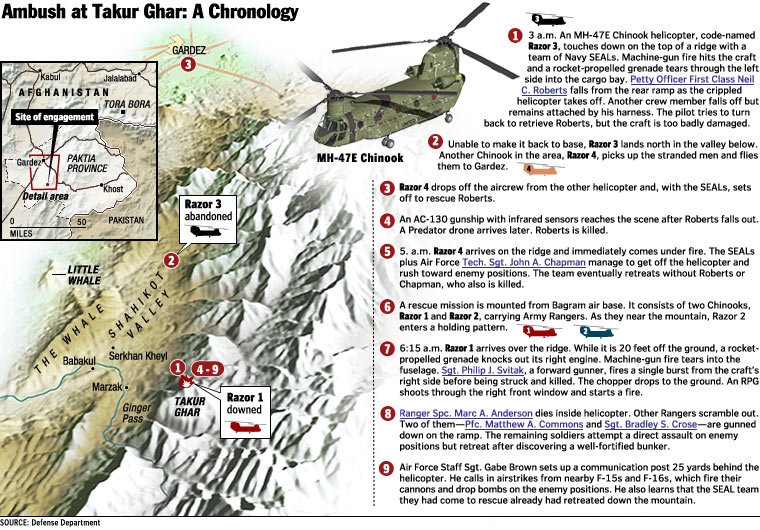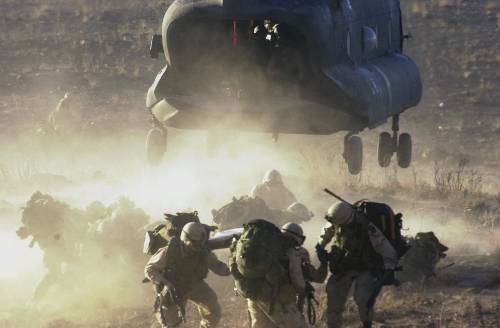MoH is a great game for the PS3- not without it's shortcomings, but none the less a superbly playable and engaging entertainment. It's also an interesting object lesson in the way that popular entertainment and history are renegotiating their relationship in the early years of the 21st century.
 |
| Cover art for Medal of Honor EU release. Copyright Electronic Arts |
The campaign is basically a fictionalised account of 3 days of activities by US special forces in southern Afghanistan in 2001 and 2002. The history I shall come too, but in essence the developers have taken a few 'set piece' battles and events, and woven them into a compelling and nail biting sequence of missions. The pace is delightfully varied, from stealthy creeping work, to desperate all guns blazing last stands, and the added variety of some lovely vehicle levels. I never really got the hand of the quad bikes, but they're just for transport between levels. On the other hand, the Apache gunship level is simply delightful- in spite of being a pretty standard 'on rails' shooter level there's almost no feeling of being constrained. All the levels have a real feeling of challenge- the few I made it through without respawning to a save felt like I'd scraped in by the skin of my teeth, and in most I had to retry tactics and approaches. There's certainly more than one way to skin a cat in this game, but an almost infinite number of ways for the cat to skin you!
On the down side- I finished this in an afternoon- maybe 5 hours of play, 3.5 hours of actual game time (restarts etc). Some levels could perhaps have been eeked out a little more (the taking of Bagram airfield felt abbreviated somehow) but then again, perhaps that's where the difficulty comes in (I played through on the medium level). The multiplayer has some great maps but as a noob you really are chum to the sharks when you join. And the lack of a squad mechanic feels peculiar, when the single player is carried through in a totally squad level story.
In fact this lack of any squad mechanic in the game is the single biggest weakness overall. The characters you play are all mid to low level ranks on the field, there's always a sergeant, a CPO or someone else to give the orders. Sure, that's a nice way to get hints into the game, keep is relatively simple, but it does set a 'headroom' for what you can do, how much charge one can take, and leaves one feeling ever so slightly that one is 'along for the ride'.
But it is quite a ride- a fictionalised account of the very real, crucial, controversial and harrowing experiences of US special forces in the early days of the latest Afghan War. In these early days of the conflict US, UK, Australian and other coalition special forces worked alongside the 'Nothern Alliance' of tribes to oust the Taliban government of Afghanistan, and then put the pressure on al Qaeda's forces in the south east, along the Pakistan border. this game opens with a couple of mission looking at the initial fight against the Taliban, including the taking of Bagram airbase. Slightly annoying to a British game player and reviewer this operation was historically conducted by a UK SBS team, not US Seals as the game portrays. And here the fictionalisation begins!
We then move forward a few months, into Operation Anaconda- or more specifically the brief mountain top Battle of Takur Ghar- the infamous assault on the Taliban in the Shahi-Kot valley. Here the developers have taken known elements- special forces teams being dropped into hot LZs, teams being split up, downed transport helicopters, and spritzed the whole up with an archetypal 'idiot boss' general back in the the US (though not in uniform, and not in Washington apparently). This is probably the account of the operation that most people will have seen- 5 million copies of this game have been sold. Many more than would have read an in depth report of the battle, or watched in full any of the news reports (which at the time omitted many of the details for operational security reasons, and probably more than a little embarrassment on the part of the Nato forces). So, when we see US forces subduing a goat-herd by rendering him unconscious, it is in contrast to the reports that US forces criticised German special forces for not killing such by standers. The developers have civilised the US forces. And when the Apaches level a village (a LOT of fun it has to be said) we are told there are no civilians there at all, again in contrast to reported actuality.
 |
| An infographic from the Washington Post describing the core actual events upon which the game's story is based. |
This is bowlderised Hollywood historical revisionism of a peculiarly insidious kind. Perhaps. The US is seen as being the sole protagonist nation (UK, Australian, Norwegian, & German forces who are a critical part of the historical event are completely airbrushed out). US forces are shown to treat civilians dubiously, but not murderously as the historical record suggests. Mistakes in planning and deployment are scapegoated onto a single distant general, rather than being the result of complex institutional failures. And the tragedy of lone soldiers and operators being abandoned on mountainsides to be killed alone is replaced by a heroic, if ultimately [SPOILERS!] tale of teams sticking together through thick and thin.
It is just a game, and as I have said early, a pretty good one at that. But this is 'popular history' now. This is the 'Longest Day' of our age, the 'Bridge Over the River Kwai' of the Afghan War. We're seeing a few books, but this, to US eyes at least, second division scrap isn't even getting the meager cultural sifting that that war received. It's a dark and shadowed war, and if this is the only light cast on it, then I fear for history today.

No comments:
Post a Comment